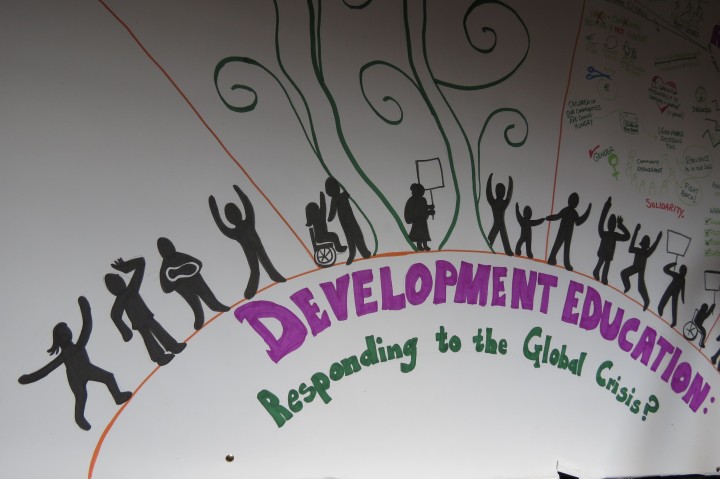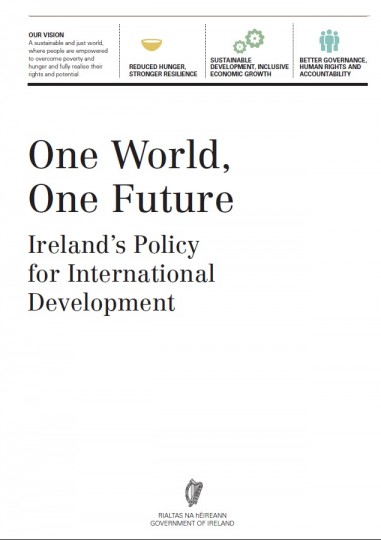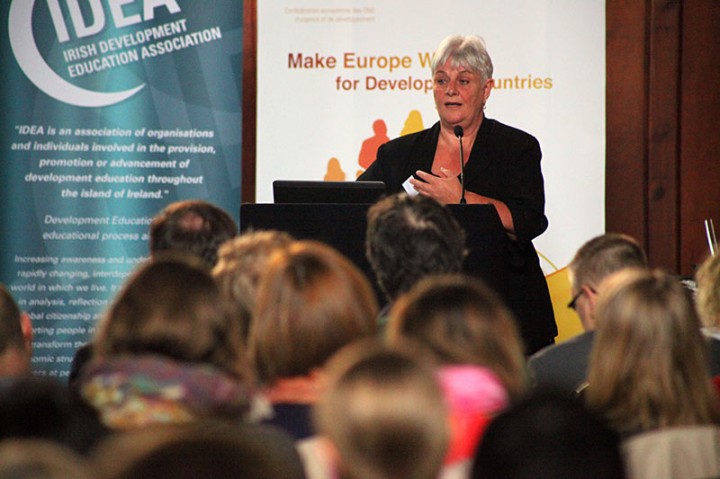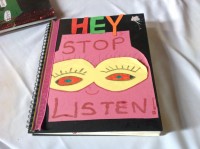
The DEEEP Seminar “Development Education: Responding to the Crisis?” took place in Dublin last month, bringing together over 100 development education practitioners and policy makers from across Europe to consider the role and response of development education in this time of global financial crisis.
Co-hosted by Dóchas and IDEA, the seminar focused on ways in which development education can foster community resilience as well as questioning whether we are doing enough to encourage and support citizens to take action for change.
This was a unique opportunity for sharing and learning from the experiences of development education colleagues and activists within Europe, as each are challenged in their individual countries to bridge the gap between local and global issues, as well as considering ways in which we can collaborate and advocate for a better world for all.
So what were the highlights?
The Minister of State for Trade and Development, Mr Joe Costello delivered an opening address and acknowledged that development education  is part and parcel of what we should all be involved in at every level, especially during this the European Year of Citizens. He highlighted the rights and responsibilities we hold as citizens and commented on the increasingly interconnected world in which we live and the need for citizens to understand what is happening in their own communities, as well as across the world. Development education is a key tool to achieve this and is recognised within the Irish Government’s new International Development Policy, One World: One Future.
is part and parcel of what we should all be involved in at every level, especially during this the European Year of Citizens. He highlighted the rights and responsibilities we hold as citizens and commented on the increasingly interconnected world in which we live and the need for citizens to understand what is happening in their own communities, as well as across the world. Development education is a key tool to achieve this and is recognised within the Irish Government’s new International Development Policy, One World: One Future.
The theme of global citizenship was further developed by Nessa Ní Chasaide, of the Debt and Development Coalition, who introduced and chaired the plenary session, quoting an Aboriginal Activist who said that
“If you have come to help me you are wasting your time, but if you have come because your liberation is bound up with mine then let us work together”.
Nessa spoke of the need to link learning to collective action and highlighted the centrality of the theme of resilience to development education practice.

The immediacy of the global crisis was brought home to us by Cathleen O’Neill, of Kilbarrack Community Development Project, who commented on the devastating impact that government cuts are having on her local community in Dublin 5 [View presentation here]. Cathleen spoke with passion, conviction and a real sense of determination that she (and her community) would not roll over in the face of the crisis and dedicated her input to Audre Lorde, Civil Rights Activist and Poet, who spoke about “that piece of each of us which refuses to be silent”. Her speech lifted the room and received a standing ovation, setting the tone for the day ahead.

The exhibition ‘Books of Grievance and Hope’, which draws its inspiration from the story of the Lists of Grievances gathered at the beginning of the French Revolution, created a powerful visual that complemented Cathleen’s input. The books represent the hopes and dreams of a broad spectrum of people and ages and speak to the desire for a more equal and just society, based on strong systems of accountability.
Micha Narberhaus, from Smart CSOs Lab (Germany), reflected on the global situation from a macro level and highlighted the need for civil society organisations to challenge, rather than reinforce, dominant institutional and societal paradigms. [View presentation here] Micha’s input reminded me of the need to constantly re-evaluate our situation, to seek multiple perspectives and to critically reflect on the role we are playing in engaging broader civil society in a conversation on the type of values and society that we want.
Dr. Momodou Sallah, from De Montfort University (UK), delivered an inspiring input reminding us that re-imagining another world is possible. He spoke of the role that development education can play in building resilience, by provoking consciousness and allowing people to expand their minds, thereby facilitating people to imagine an alternative reality to the one that they are currently faced with and take action. [View presentation here].
In different ways the speakers each pointed to the need to enhance global understanding of structural inequalities and to provide people across the global and communal spectrum with alternative paradigms and outlets for real change. Developing new systemic solutions and strategies that will allow the seeds of a new economy to flourish are critical to realising an alternative vision for the world we want. Underlying the various speakers’ inputs was a sense that by coming together as global rather than local citizens, we can be stronger.
There was a great buzz in the room as the World Café session [link to world café method] got underway, ably facilitated by Alan Hayes, who encouraged everyone to intermingle between ‘questions’, providing a rich cross-fertilisation of ideas. As many participants have been experiencing the impact of the crisis at a very personal level in their home countries the discussions were lively and reflected the depth of feeling in the room about the need for change, for making local – global links, and for engaging citizens in a debate about our collective future.
This enthusiasm carried through to the afternoon workshops and was rounded off by an input by Hans Zomer of Dóchas at the end of the day, encouraging participants to get involved in the global conversation on The World We Want campaign, highlighting this as a critical opportunity to influence the post-2015 development framework once the Millennium Development Goals timeframe expires. Tobias Troll of DEEEP also noted the opportunity that the global crisis presents, to reframe the conversation and propose alternative allocations of resources, building on the momentum that is building across Europe for change.
The uplifting song of the Discovery Gospel Choir ended the day on a high note, leaving participants feeling energised and perhaps more ‘resilient’ for the journey ahead.
“Life doesn’t get easier or more forgiving, we get stronger and more resilient.”
-Steve Maraboli
